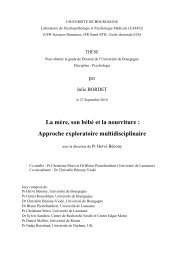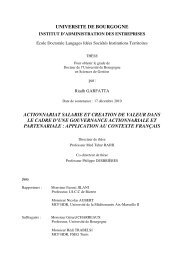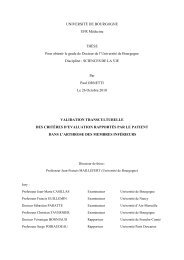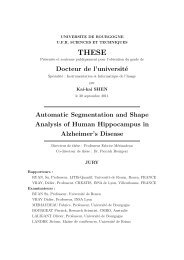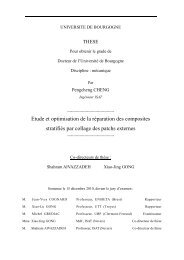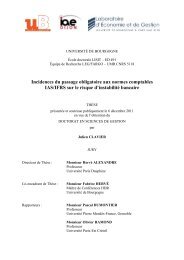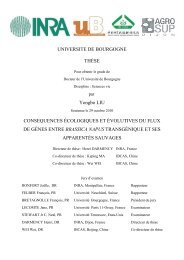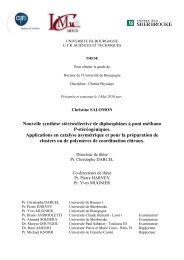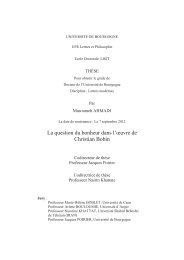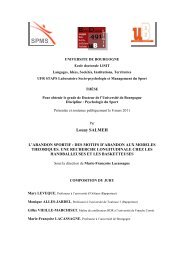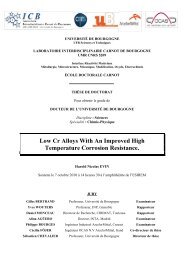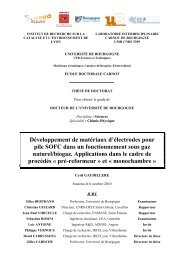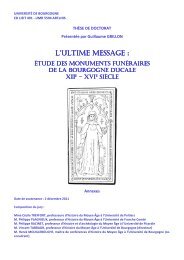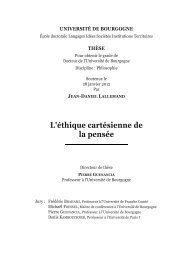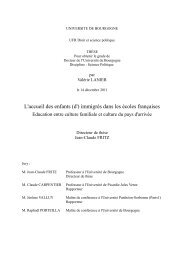Higher education in Asian countries and the role of international ...
Higher education in Asian countries and the role of international ...
Higher education in Asian countries and the role of international ...
You also want an ePaper? Increase the reach of your titles
YUMPU automatically turns print PDFs into web optimized ePapers that Google loves.
252<br />
politics more effectively <strong>and</strong> to pursue <strong>the</strong>ir self-<strong>in</strong>terest. Neo-realists consider IGOs as<br />
<strong>in</strong>effective <strong>and</strong> mean<strong>in</strong>gless actors that work for great powers. In contrast, accord<strong>in</strong>g to<br />
liberalists IGOs play constructive <strong>and</strong> effective <strong>role</strong> <strong>in</strong> shap<strong>in</strong>g <strong>in</strong>ternational l<strong>and</strong>scape <strong>and</strong> to<br />
achieve mutual goals. On <strong>the</strong> o<strong>the</strong>r h<strong>and</strong> idealists consider IGOs legal platforms to achieve<br />
mutual objectives <strong>and</strong> to promote human welfare. This <strong>the</strong>ory played a key <strong>role</strong> <strong>in</strong> <strong>the</strong><br />
development <strong>of</strong> IGOs. Institutional <strong>the</strong>ory expla<strong>in</strong>s <strong>the</strong> complex configuration <strong>and</strong> functions <strong>of</strong><br />
organization by expla<strong>in</strong><strong>in</strong>g. Accord<strong>in</strong>g to this <strong>the</strong>ory states are <strong>in</strong>terested <strong>in</strong> IGOs because <strong>of</strong> <strong>the</strong><br />
possibility <strong>of</strong> higher mutual ga<strong>in</strong> <strong>and</strong> Institutionalist considers IGOs-IGOs <strong>and</strong> IGOs-States<br />
cooperation as completely rational <strong>and</strong> complementary. But <strong>the</strong> behavioralist see IGOs<br />
differently, <strong>the</strong>y assume that <strong>the</strong> activities <strong>of</strong> IGOs <strong>and</strong> political <strong>in</strong>stitutions are based on<br />
fundamental social forces so that <strong>the</strong> study <strong>of</strong> IGOs <strong>and</strong> <strong>in</strong>stitutions should commence with study<br />
<strong>of</strong> society, culture, <strong>and</strong> human key actors. On <strong>the</strong> o<strong>the</strong>r side functionalist propose <strong>the</strong> idea that<br />
IGO are designed to achieve specific goals must help to materialize <strong>the</strong> set objectives, only <strong>the</strong>n<br />
it can be considered as a fully functional body. The followers <strong>of</strong> constructivism <strong>the</strong>ory, IGOs are<br />
socially constructed entities that play a vital <strong>and</strong> <strong>in</strong>dependent <strong>role</strong> <strong>in</strong> spread<strong>in</strong>g global norms,<br />
<strong>in</strong>clud<strong>in</strong>g higher <strong>education</strong> (Koremenos, Lipson, & Snidal, 2001). Rationalism <strong>and</strong><br />
constructivism are generic <strong>the</strong>oretical orientations that are complementary on some crucial po<strong>in</strong>ts<br />
(Katzenste<strong>in</strong>, Keohane, & Krasner, 1998).<br />
As a result <strong>of</strong> recent developments <strong>the</strong> importance <strong>of</strong> IGOs has fur<strong>the</strong>r <strong>in</strong>creased. Globalists see<br />
IGOs as an <strong>in</strong>tegral tool <strong>of</strong> <strong>in</strong>ternational cooperation to achieve economic development whereas<br />
Inter-governmentalists gives more importance to <strong>in</strong>tegration so <strong>the</strong>y see <strong>the</strong> IGOs as a mean to<br />
<strong>in</strong>tegrate states to achieve common goals. Accord<strong>in</strong>g to this <strong>the</strong>ory <strong>the</strong> <strong>in</strong>tegration <strong>and</strong><br />
cooperation through IGOs is based upon rational self-<strong>in</strong>terest <strong>of</strong> states ra<strong>the</strong>r than practicability<br />
<strong>and</strong> usability as seen <strong>in</strong> functionalism <strong>and</strong> neo-functionalism. But classical realists see states as<br />
<strong>the</strong> major actors <strong>in</strong> <strong>in</strong>ternational politics where IGOs have a limited <strong>role</strong> to play d (Morgenthau<br />
& Thompson, 1985). The complex study <strong>of</strong> IGOs can be simplified when seen through Game<br />
<strong>the</strong>ory. This <strong>the</strong>ory helps to simplify <strong>and</strong> to solve <strong>the</strong> problem faced by <strong>in</strong>ternational actors: <strong>the</strong><br />
rational decision for an <strong>in</strong>dividual actor that can be a state or an IGO. This <strong>the</strong>ory is a useful tool<br />
to study complex process <strong>of</strong> IGO-state relations <strong>and</strong> effectiveness, <strong>and</strong> to maximize outcomes <strong>of</strong><br />
actions.



